(TN&MT) - On the afternoon of November 12, to clarify some issues under the Government's authority, Prime Minister Pham Minh Chinh further answered issues of concern to National Assembly deputies and directly answered questions from National Assembly deputies.
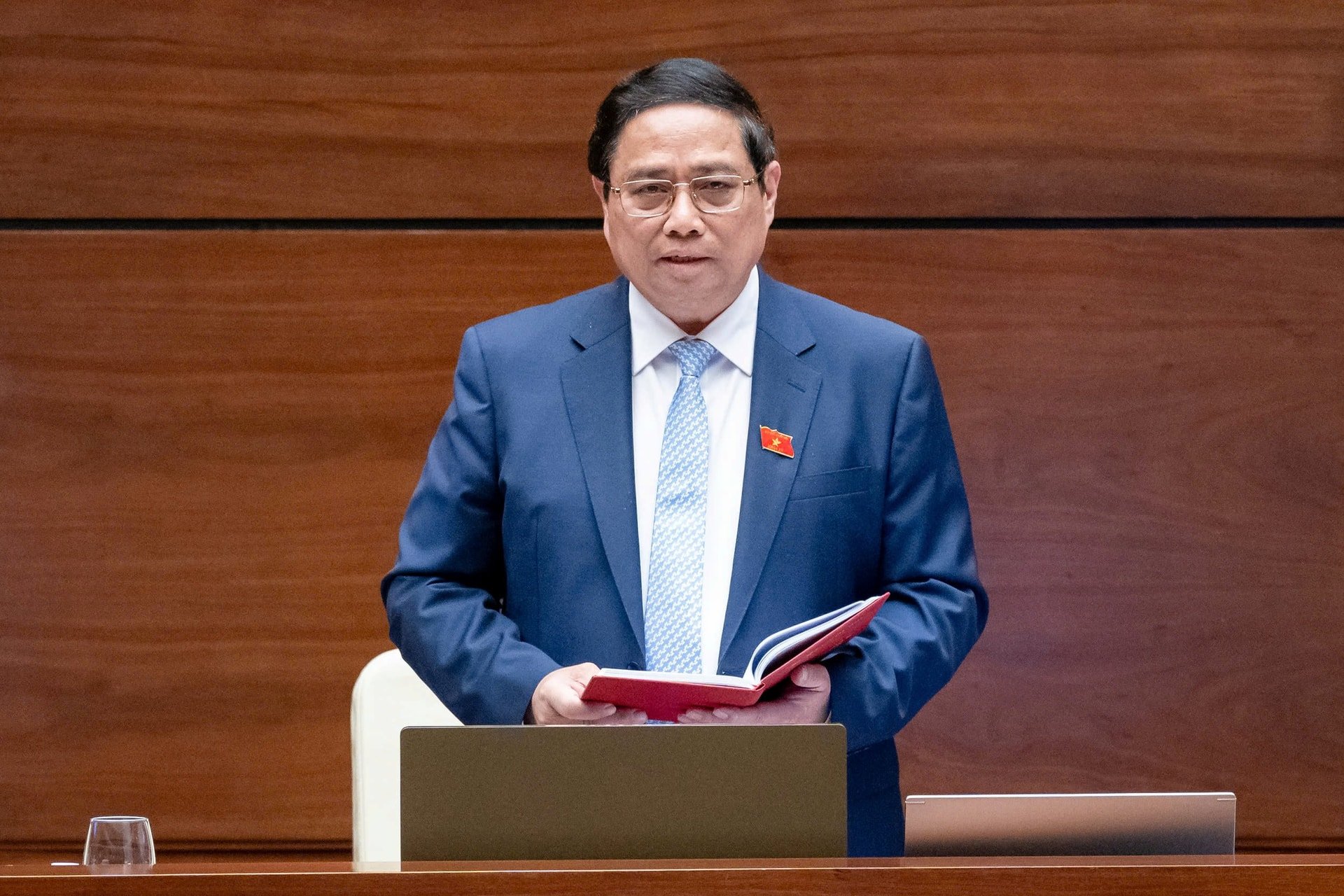
Delegate Mai Thi Phuong Hoa - National Assembly Delegation of Nam Dinh Province: Clarifying solutions to promote decentralization and delegation of power in the coming time
Questioning the Prime Minister, delegate Mai Thi Phuong Hoa said that the Government has set the task of substantially improving the effectiveness and efficiency of the administrative apparatus' operations, which must be associated with reasonable decentralization and delegation of power between levels.
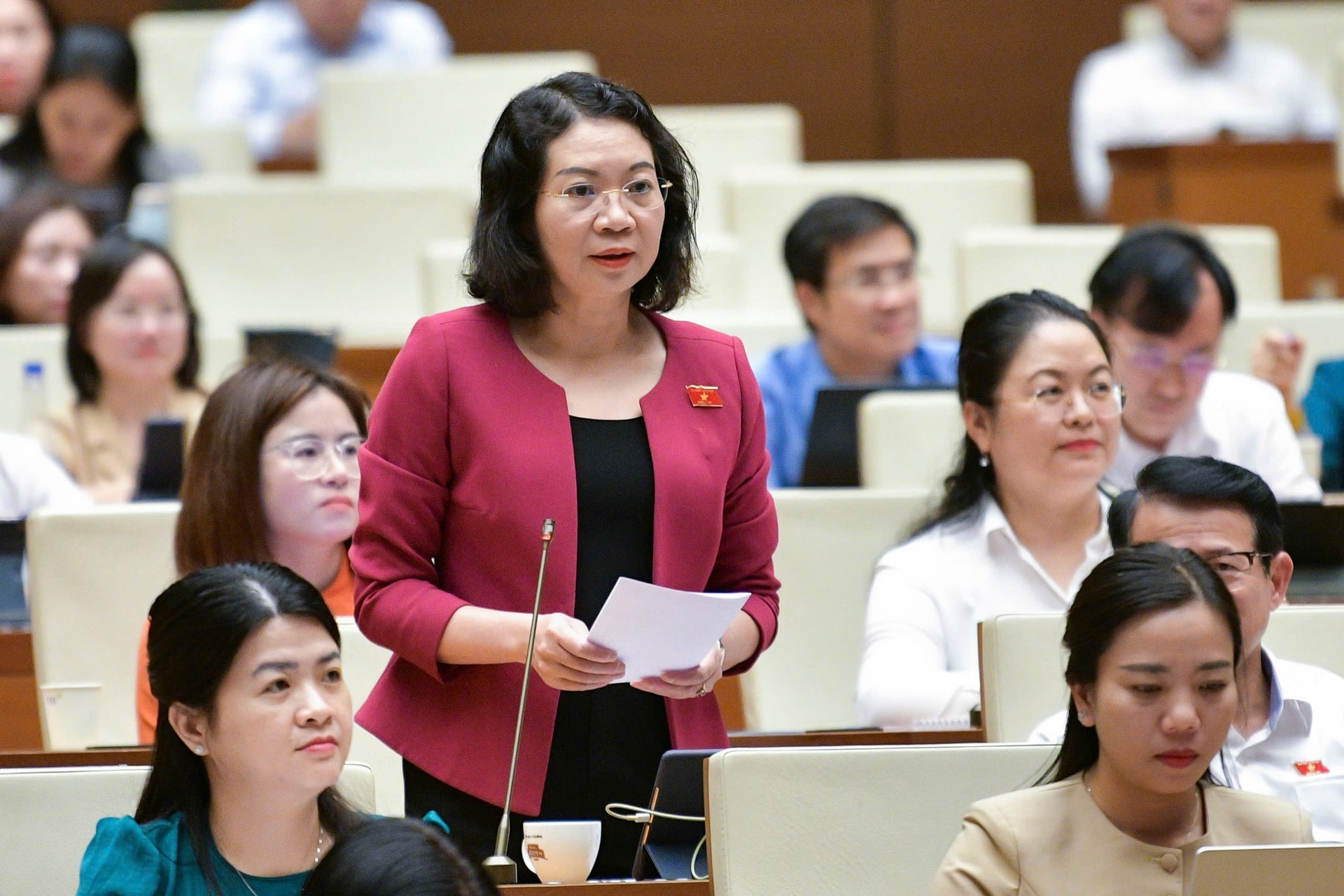
However, the delegate pointed out that in the past, during the implementation process, there were still some shortcomings and limitations such as: The review, amendment, supplementation and completion of specialized legal regulations were slow; the decentralization and delegation of power did not take into account the characteristics of rural, urban and island areas and the management capacity of each level and each sector, and did not maximize the potential, advantages and resources of each locality. The delegate asked the Prime Minister to provide solutions to further promote decentralization and delegation of power between the Government and ministries, sectors and localities in the coming time.
Delegate Nguyen Thi Yen - National Assembly Delegation of Ba Ria - Vung Tau Province: Clarifying solutions to complete the task of eliminating temporary and dilapidated houses
In the question, delegate Nguyen Thi Yen said that the Government and the Prime Minister have identified institutional reform as one of the key tasks and have achieved many important results to remove barriers, create an environment and driving force for socio-economic development. The delegate asked the Prime Minister to clarify what are the most important highlights in the coming time?
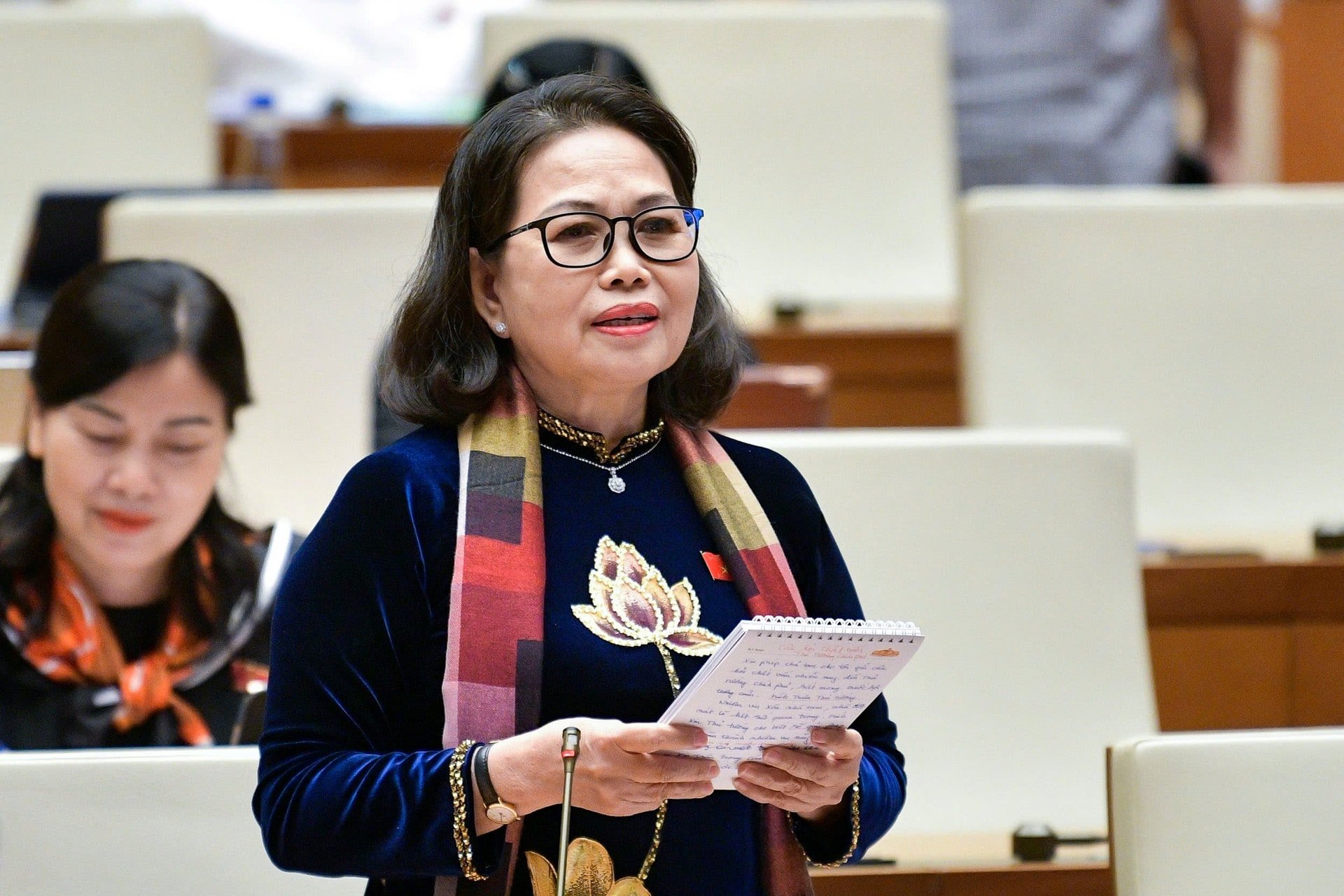
In addition, the task of eliminating temporary and dilapidated houses is extremely urgent. Delegates asked the Prime Minister to clearly state solutions to complete this task by 2025.
Delegate Au Thi Mai - National Assembly Delegation of Tuyen Quang Province: Clarifying fundamental, long-term solutions to respond to natural disasters in the coming time
In the question, delegate Au Thi Mai said that responding to climate change and natural disasters is a matter of global concern. The people and voters are very moved and appreciate the timely, effective and humane response of the Government and the Prime Minister when natural disasters occur, most clearly the response to the recent storm No. 3.
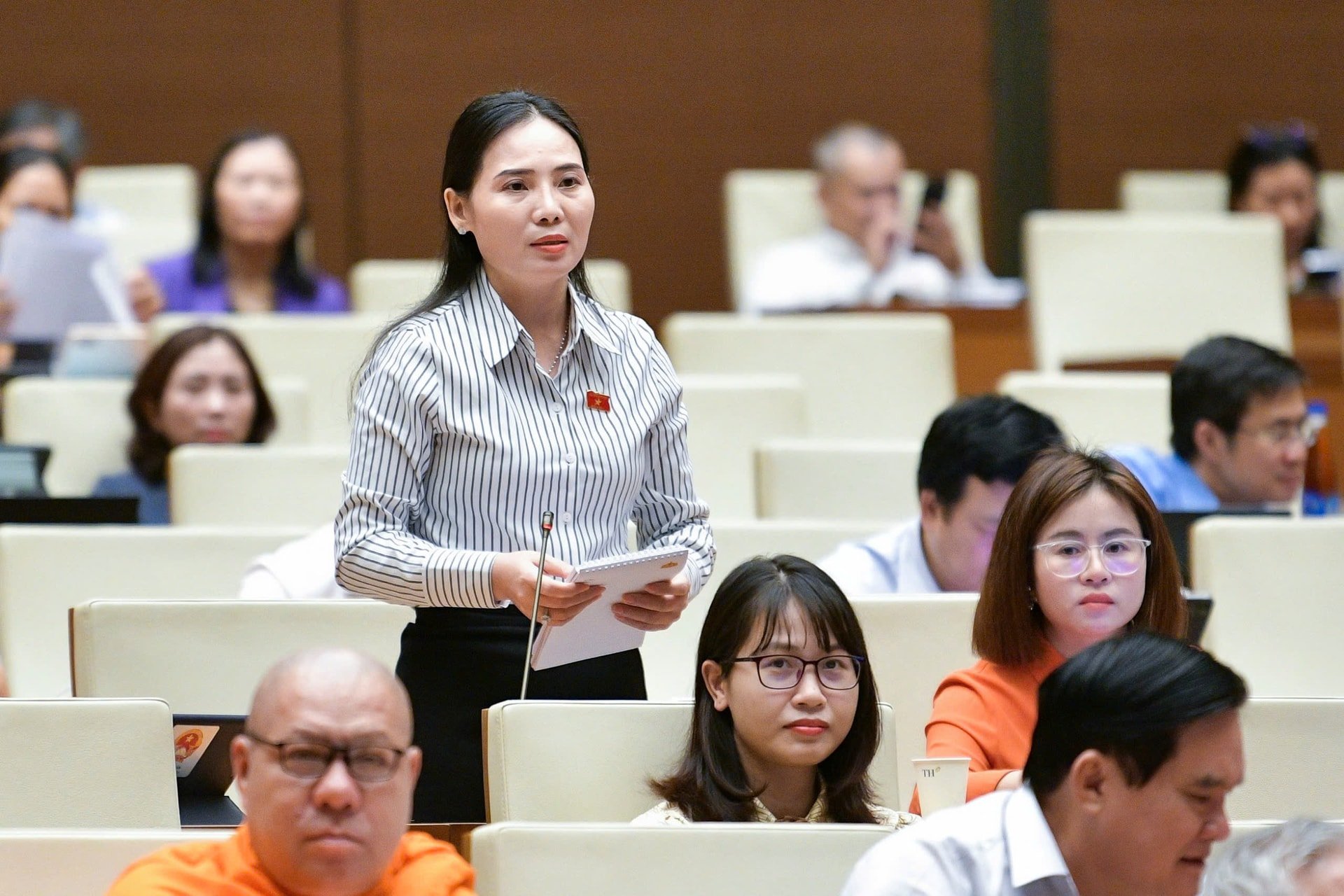
“In order to promptly encourage the people to overcome difficulties, the Prime Minister has proposed short-term and long-term solutions that have been highly appreciated by voters and the people. However, the people and voters hope that the Prime Minister will provide more information about fundamental and long-term solutions to respond to natural disasters in the coming time,” the delegate emphasized.
Delegate Nguyen Thi Kim Thuy - National Assembly Delegation of Da Nang City: Solving backlogged projects and weak credit institutions
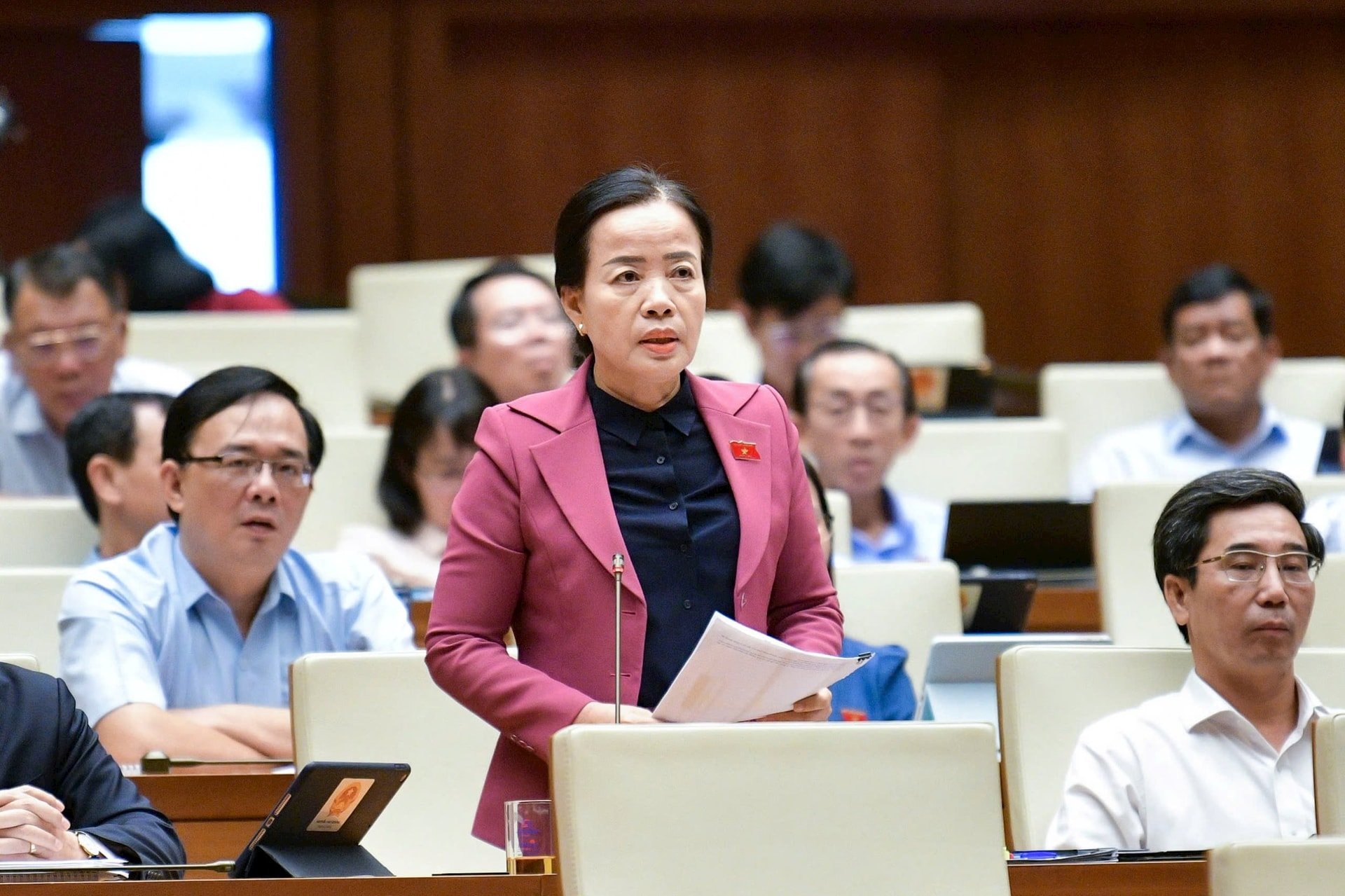
Appreciating the determination and resolve of the Government and the Prime Minister in handling backlogged projects and long-standing problems at the central and local levels, however, there are still a number of backlogged projects and weak credit institutions that have not been resolved. Therefore, delegate Nguyen Thi Kim Thuy asked the Prime Minister to inform about the causes, solutions regarding mechanisms and progress in the coming time?
Delegate Duong Khac Mai - National Assembly Delegation of Dak Nong Province: Solutions to overcome shortcomings to promote decentralization and delegation of power
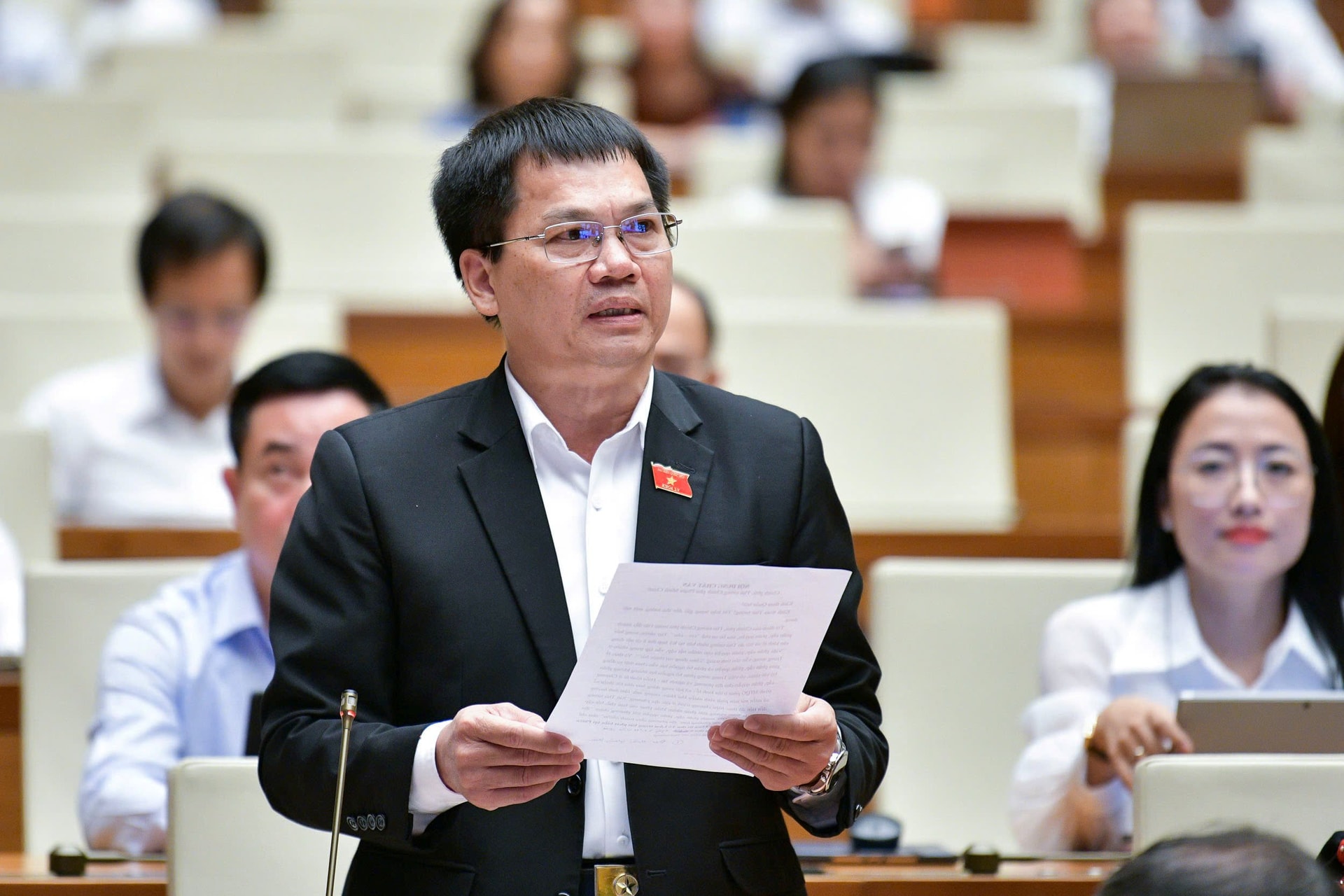
Delegate Duong Khac Mai asked the Prime Minister to provide more solutions to overcome limitations and shortcomings to promote decentralization and delegation of power with the motto "local decision, local action, local responsibility" as directed by General Secretary To Lam in his speech at the opening session of the 8th meeting on October 21, 2024.
Delegate Pham Van Hoa - National Assembly Delegation of Dong Thap province: Solutions to successfully implement important national projects?
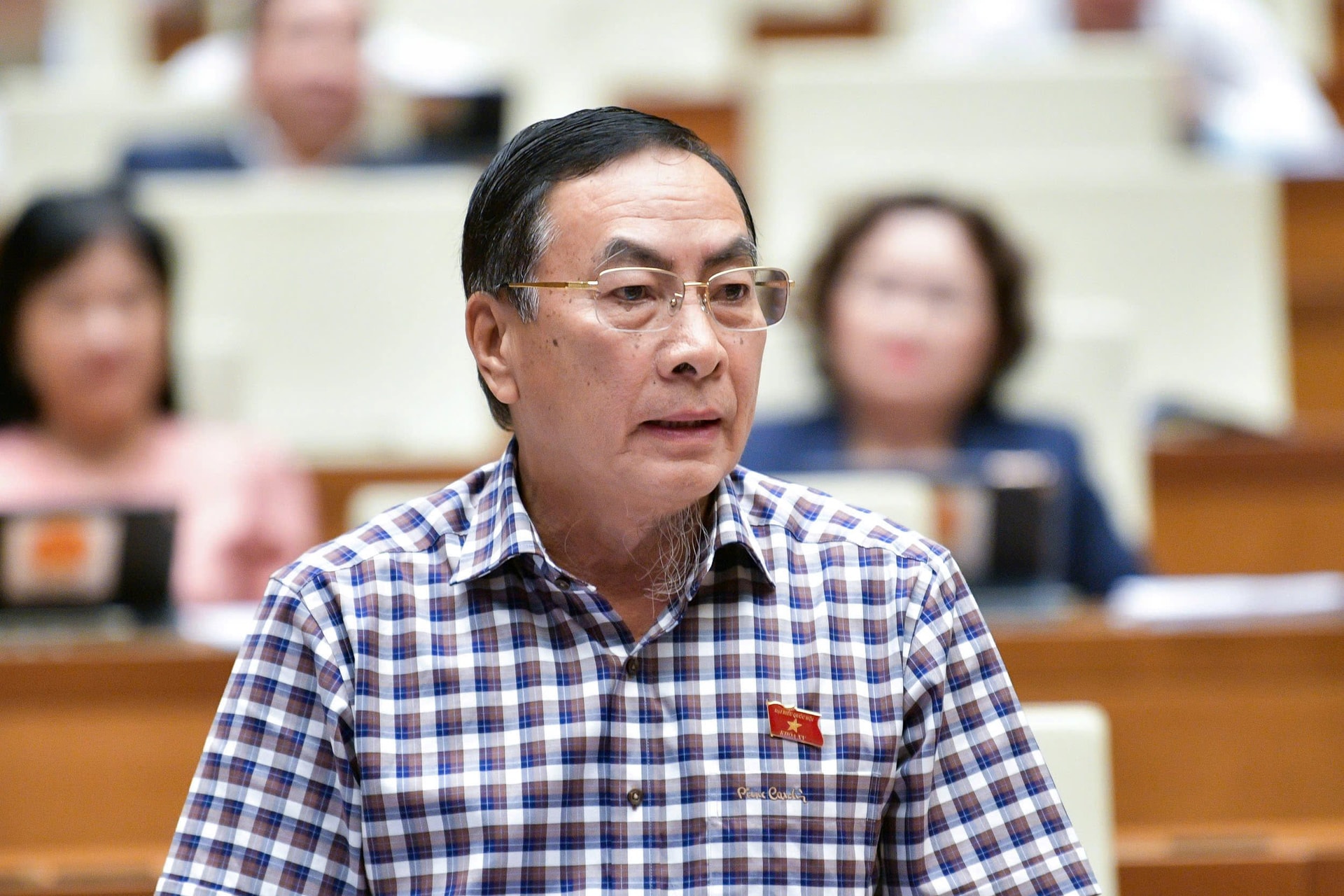
Participating in the questioning, delegate Pham Van Hoa asked the Prime Minister to inform about the solutions in the upcoming direction and management to successfully implement important national projects?
Delegate Be Trung Anh - National Assembly Delegation of Tra Vinh Province: Roadmap to complete digital institutions in Vietnam
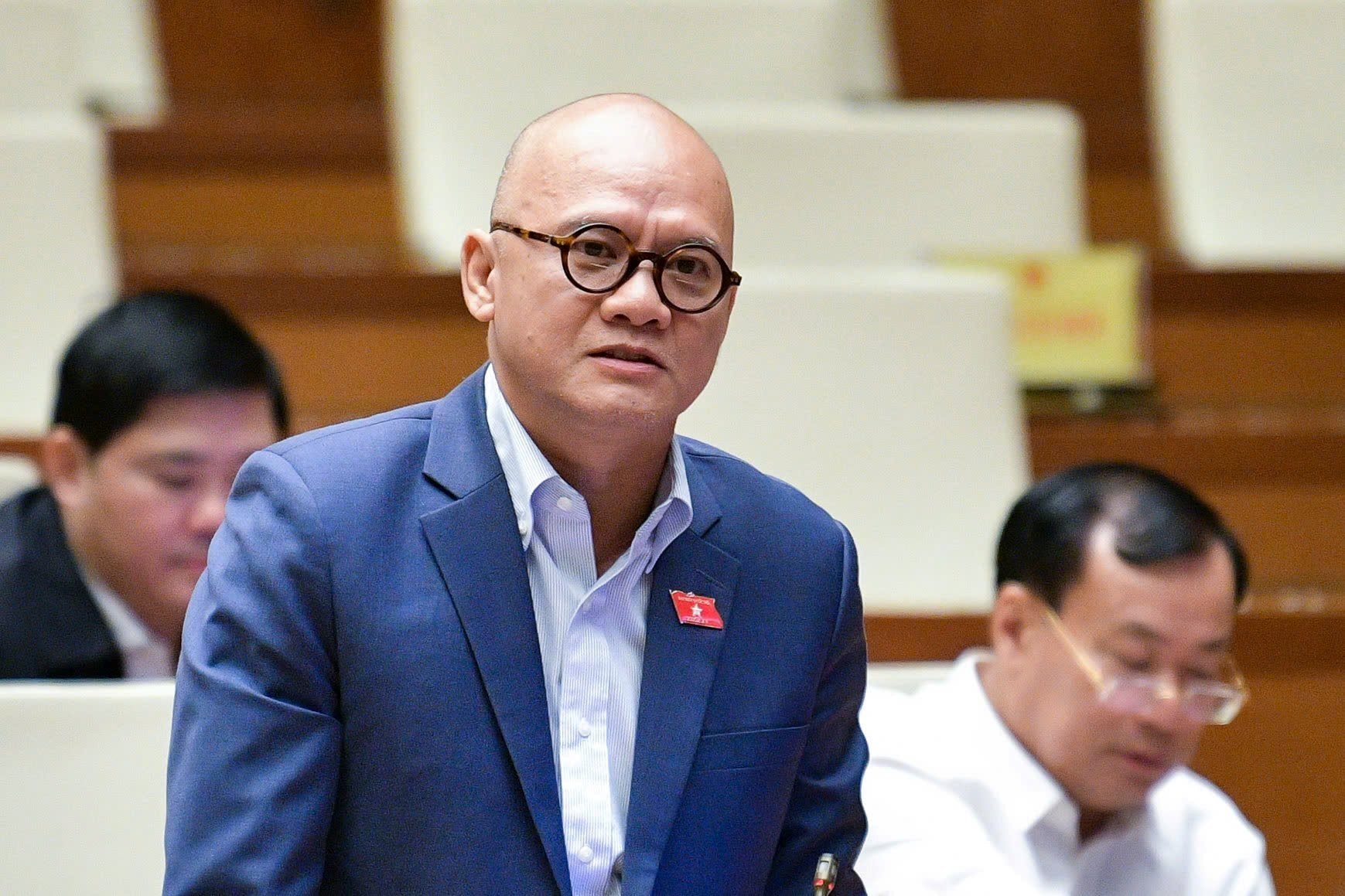
According to delegate Be Trung Anh, digital transformation is a new field, difficult to include broad contents such as digital government, digital economy, digital society and has macro impacts. The delegate questioned the Prime Minister whether data transformation needs a theoretical basis for digital transformation? In addition, when will Vietnam complete the digital institutional roadmap?
Prime Minister Pham Minh Chinh answers questions
Responding to questions from delegates on the issue of decentralization, the Prime Minister said that this is a major issue that has been discussed many times and implemented in practice. During this term, the Government has submitted to the National Assembly 14 laws, 9 related resolutions, supplementing and replacing 27 decrees. However, there are still some problems, mainly concentrated at the central level.
Proposing solutions, the Prime Minister said that it is necessary to review the institutions, legal regulations, functions, tasks and powers of agencies, specifically the Law on Government Organization, the Law on National Assembly Organization, the Law on Local Government Organization; perfecting norms and standards; strengthening supervision and inspection. Decentralization of power must go hand in hand with resource allocation and improving the implementation capacity of all levels.
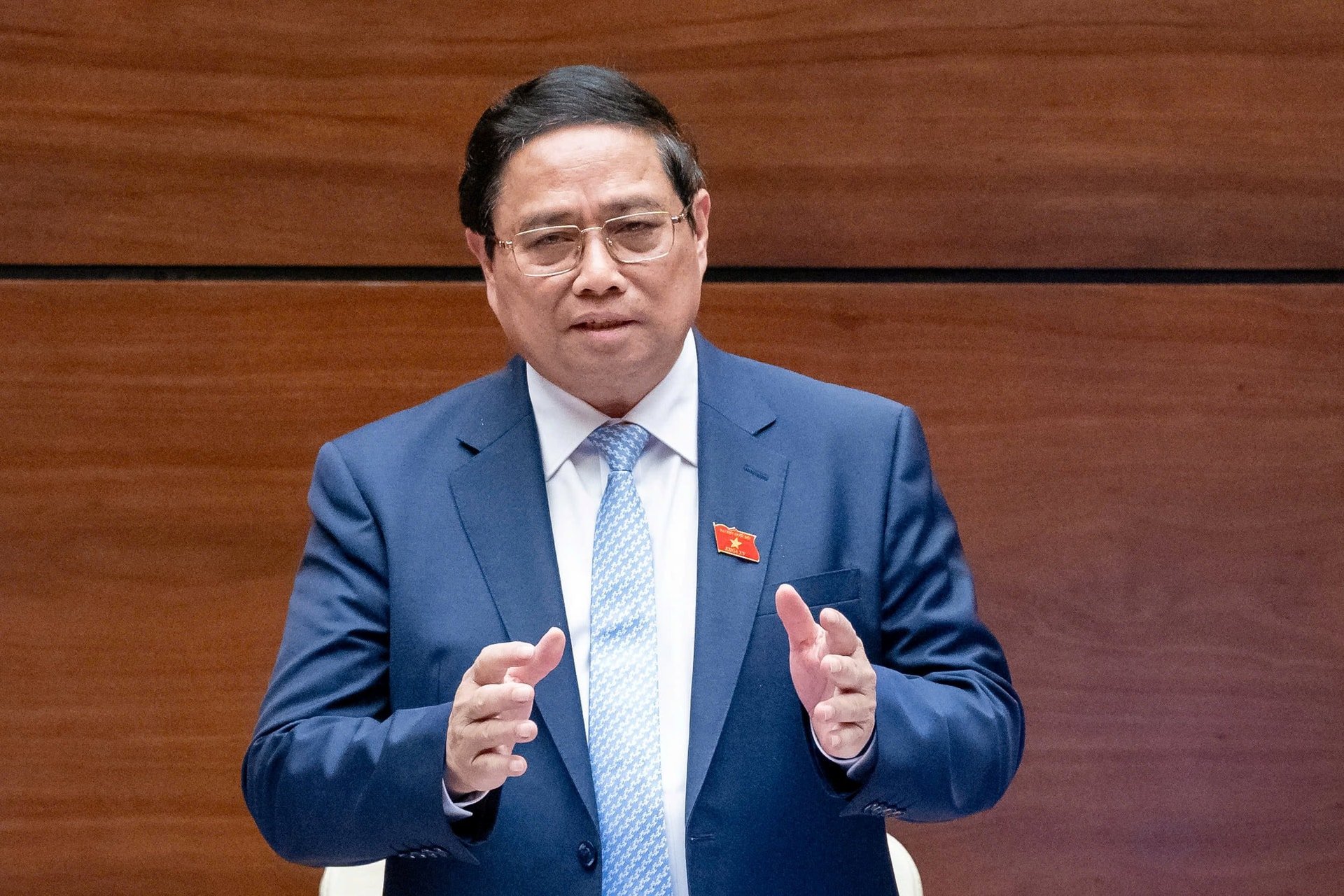
Regarding the question of institutional reform, the Prime Minister said that the focus of institutional reform is decentralization and delegation of power. In addition, it is necessary to prioritize growth, and to grow, we need resources. If we continue to grow at the current rate of 6-7% per year, it will be very difficult to achieve the 100-year target. To achieve growth priorities, institutional obstacles must be removed to mobilize all resources from the state, people, society, and direct and indirect foreign resources.
Regarding the elimination of temporary and leaky houses, the Prime Minister said that this is a major policy, the Politburo and General Secretary To Lam have directed. Currently, our country still has more than 300,000 households with dilapidated houses, including those who have contributed to the revolution, subjects of National Target Programs, poor and near-poor households. With a very high determination to eliminate all leaky and temporary houses by 2025, the Prime Minister said that it is necessary to establish a Steering Committee from the Central to the grassroots level to unify leadership, direction, mobilization and use of resources. In addition, it is necessary to remove obstacles related to land, implementing the principle "no dispute is possible to implement". Regarding resource mobilization, it is necessary to diversify resources. The military and police forces are also ready with human resources and resources to jointly implement. The Government is making efforts to balance resources to spend on this major program.
Answering the question about fundamental, long-term solutions to prevent and combat natural disasters, storms and floods, and respond to climate change, the Prime Minister said that the Party and the State are very concerned about this issue. However, the weather is very extreme, this is a global, all-people, comprehensive issue, we need to promote multilateralism, international cooperation, call for help, and global cooperation to implement it together. We need to institutionalize the Party's policies related to combating climate change, perfecting institutions suitable to the actual situation. In mobilizing resources, we need state resources, support resources from partners, and loans. Currently, resources are being prioritized for this issue. Along with that, it is necessary to improve governance capacity in responding to climate change, and enhance the self-reliance of localities.
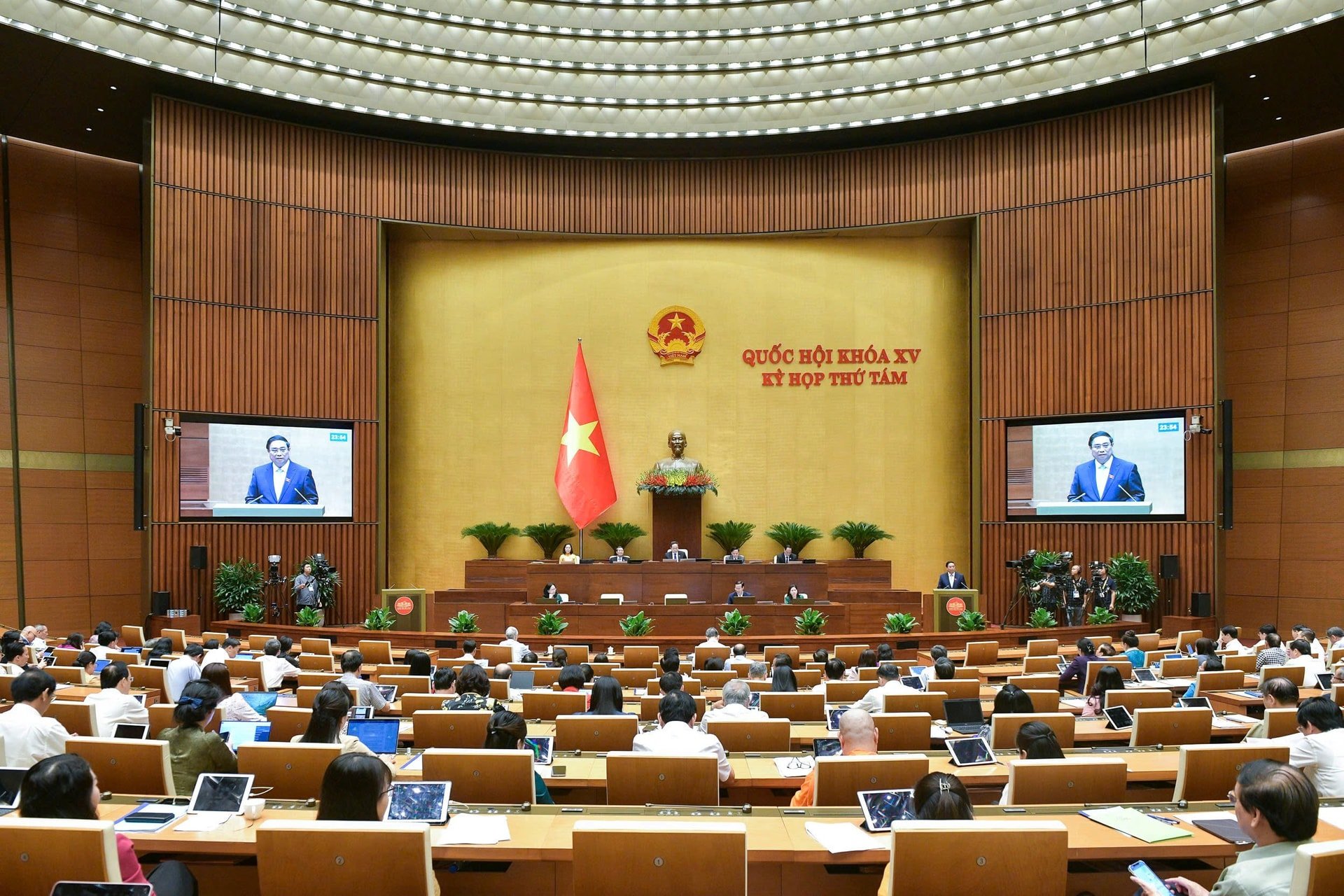
Answering the question of delegate Nguyen Thi Kim Thuy, the Prime Minister said that there are currently many long-standing backlog projects. With the efforts of the Politburo, the National Assembly, and the Government in the recent past, up to now, 12 long-standing major projects have basically requested the Politburo's approval, on that basis, the Government is implementing according to its functions, tasks, and powers. For any content that exceeds its tasks and powers, the Government will report and ask for the National Assembly's opinion. The Government will also review similar projects, handle them in the spirit of respecting the current status and removing legal obstacles.
Answering the question about theoretical basis, the Prime Minister said that theory guides the way, but theory must also be based on practice, so it is necessary to summarize practice first. Digital transformation and green transformation are trends, movements, objective requirements, strategic choices, and top priorities, so theory is needed. To have theory, it is necessary to summarize practice, in order to have solutions suitable to the specific conditions and circumstances of Vietnam. The summary needs to be done carefully, and there needs to be a roadmap to perfect the institution in a suitable and effective manner.
Responding to questions from delegates regarding the non-criminalization of economic and civil relations, the Prime Minister said that in the process of operation, new issues have arisen and the legal system has not been updated. New issues that arise are difficult and require the mobilization of large resources, so we need to focus on perfecting the institution. Because the institution is the goal, the driving force, and the resource for development, we must continue to perfect this institution, not only for green development but also for all areas of general development of the country.
Prime Minister Pham Minh Chinh stated that if we want to make a breakthrough, we must also make a breakthrough from the institutional perspective. In the process of implementation, some issues have arisen, so it is necessary to review, including the task of building an institution to regulate what can be done, what cannot be done, and what is to expand the space for creativity. The Party's viewpoint is to protect the rights and legitimate interests of all citizens and businesses, and to respect human rights in business and in socio-economic development. Therefore, it is necessary to not criminalize economic relations, civil relations, and administrative relations, but it is also necessary to build institutions and clear regulations. However, the situation of smuggling, tax evasion, manipulation, hoarding, price gouging, market manipulation, etc. must be dealt with.
Regarding the building of institutions for managing activities in cyberspace, the Prime Minister affirmed that virtual space is not like real space, therefore, management in cyberspace is the same as management in real life.
“In the spirit as the General Secretary has directed, we must abandon the mindset that if we cannot manage, we must ban it. That is, the spirit of institution building must both serve management and open up space for innovation, encouraging all people, all businesses, and all entities to innovate. Innovate to fly high and innovate to reach far, integrate to move forward,” Prime Minister Pham Minh Chinh emphasized.
Source: https://baotainguyenmoitruong.vn/thu-tuong-chinh-phu-truc-tiep-tra-loi-chat-van-cua-dai-bieu-quoc-hoi-383021.html


![[Photo] Close-up of Vietnam's sniffer dog team searching for earthquake victims in Myanmar](https://vstatic.vietnam.vn/vietnam/resource/IMAGE/2025/4/1/d4949a0510ba40af93a15359b5450df2)

![[Photo] General Secretary To Lam receives King Philippe of Belgium](https://vstatic.vietnam.vn/vietnam/resource/IMAGE/2025/4/1/e5963137a0c9428dabb93bdb34b86d7c)

![[Photo] President Luong Cuong and King Philippe of Belgium visit Thang Long Imperial Citadel](https://vstatic.vietnam.vn/vietnam/resource/IMAGE/2025/4/1/cb080a6652f84a1291edc3d2ee50f631)
![[Photo] Prime Minister Pham Minh Chinh meets with King Philippe of Belgium](https://vstatic.vietnam.vn/vietnam/resource/IMAGE/2025/4/1/be2f9ad3b17843b9b8f8dee6f2d227e7)
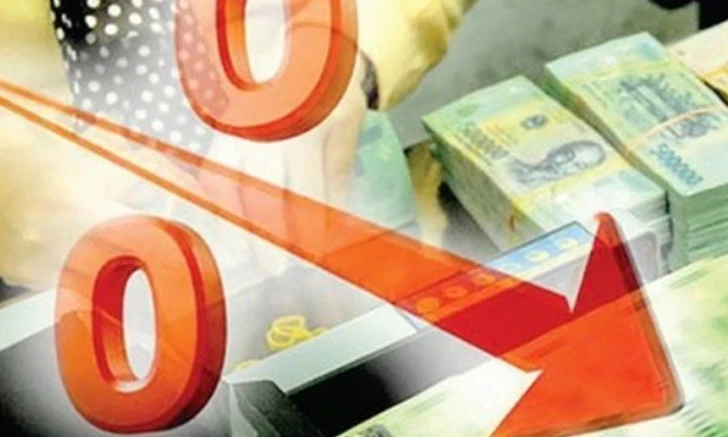

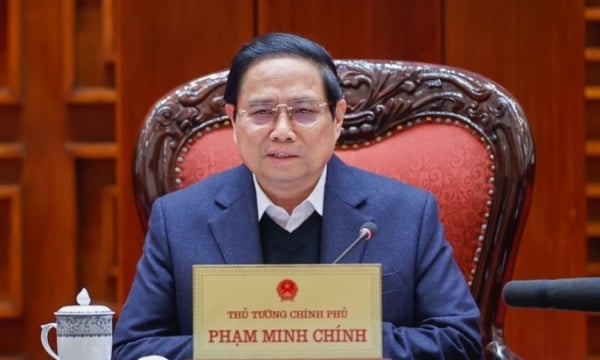
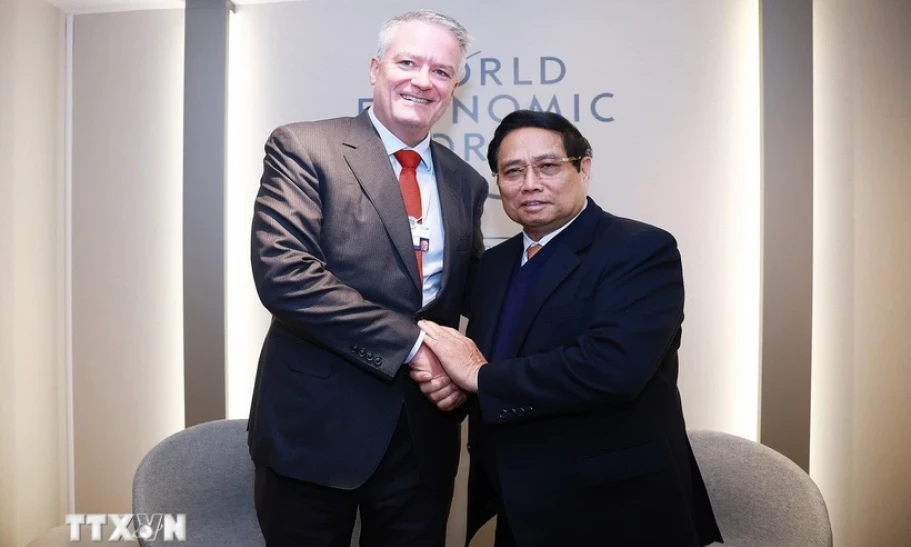
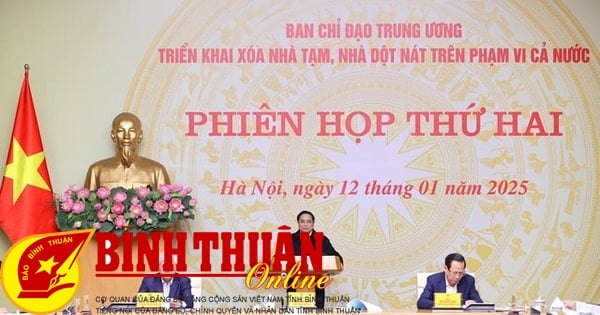
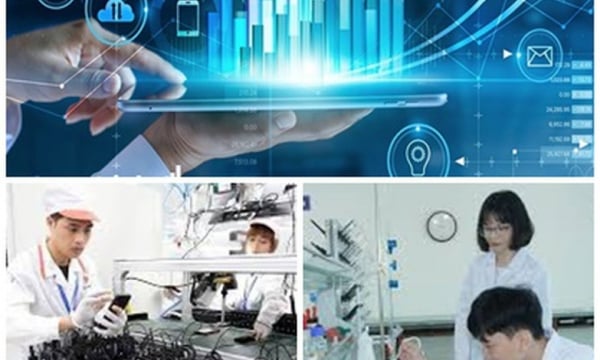
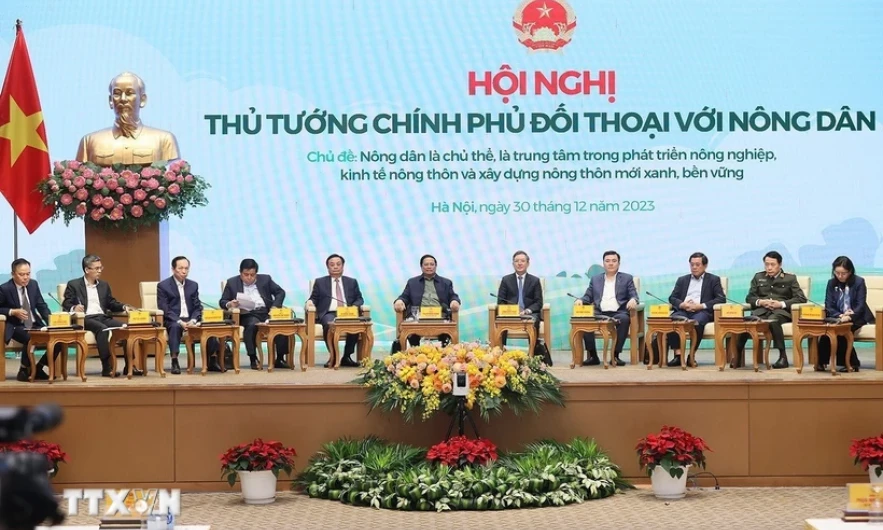


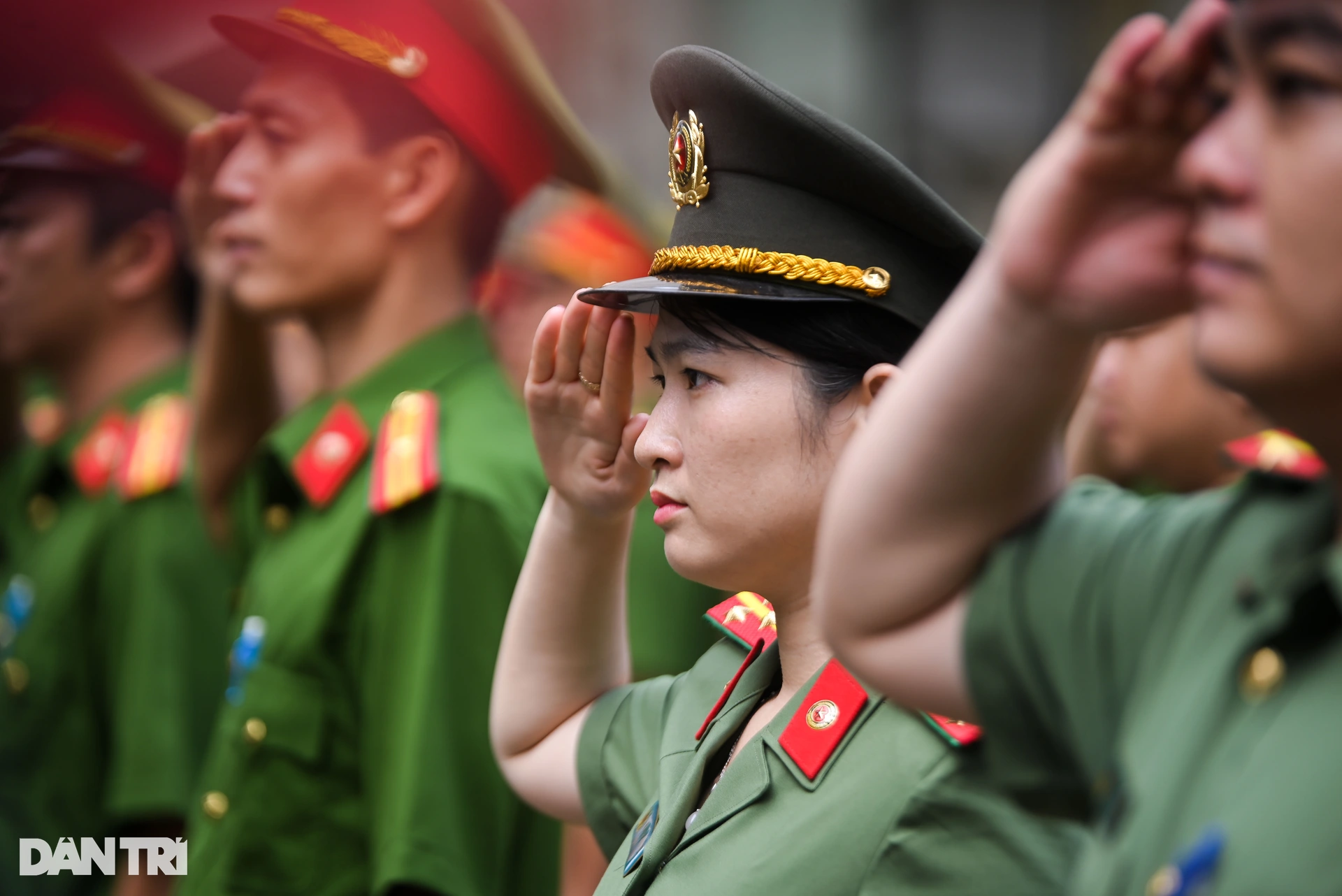
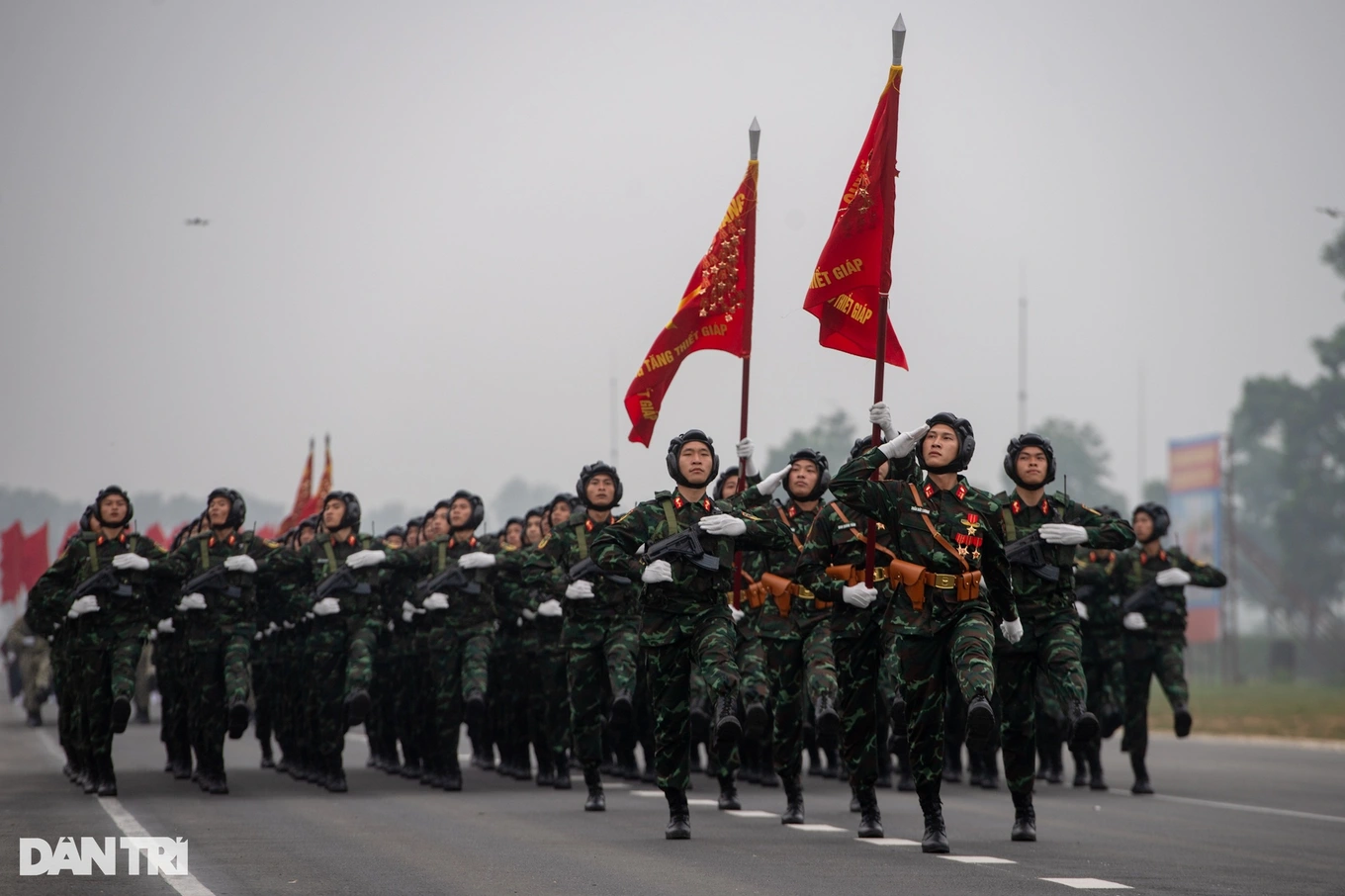
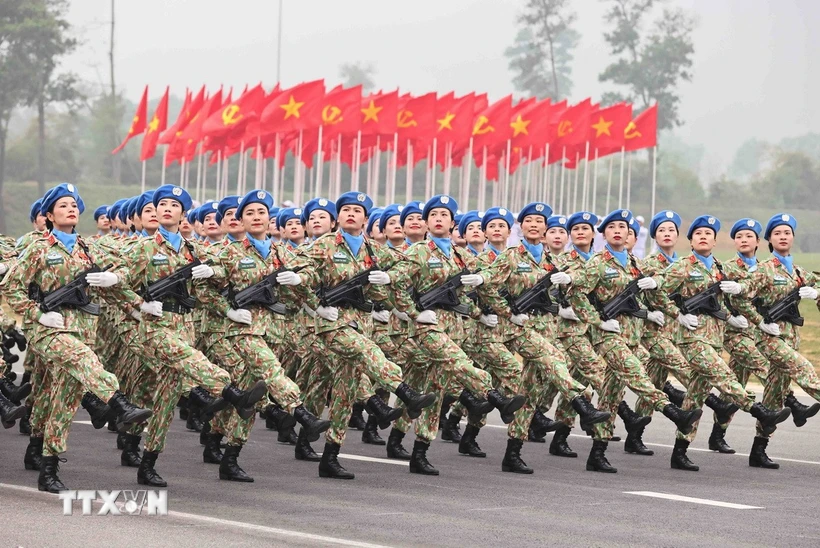
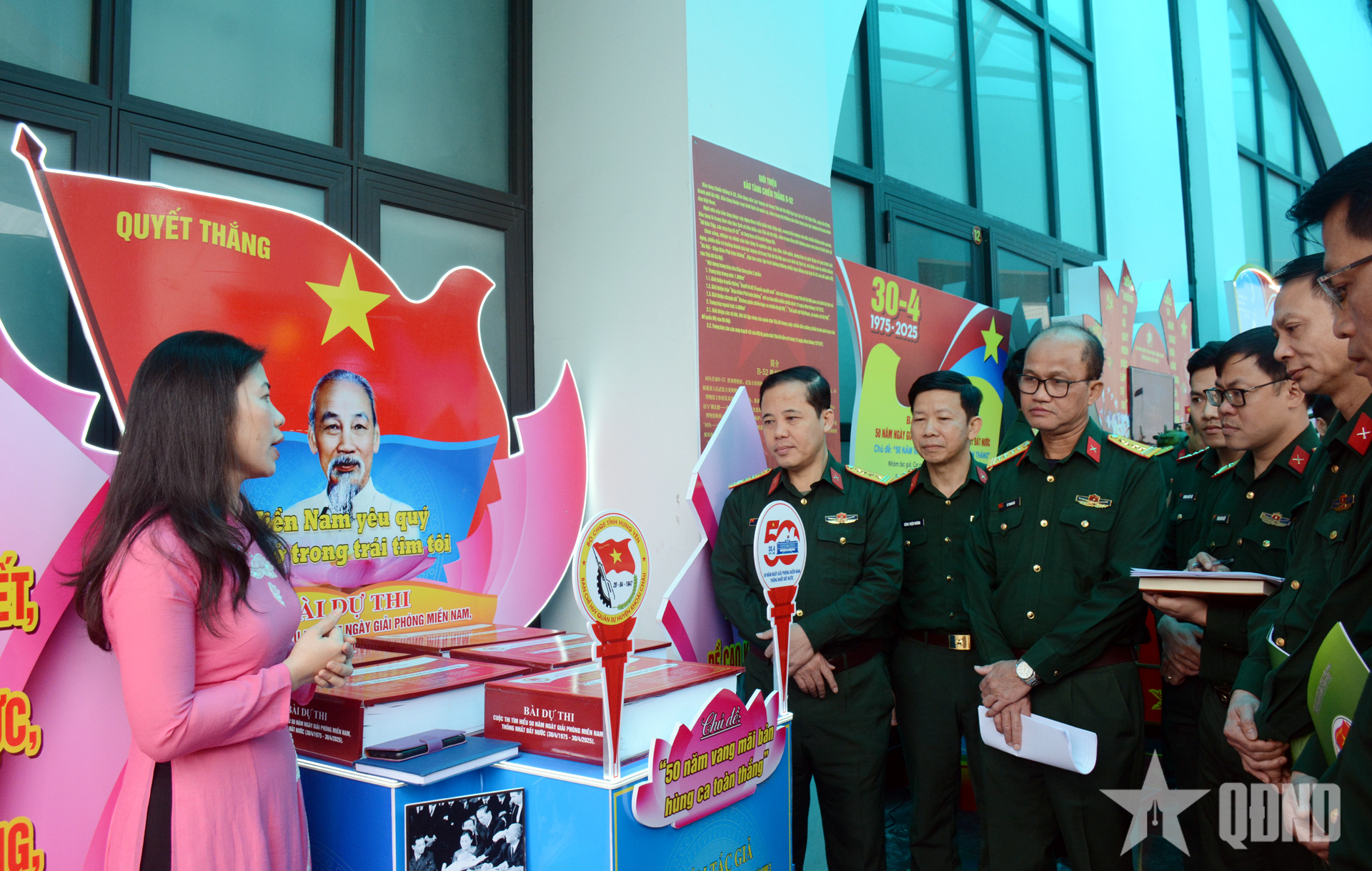










![[Photo] Myanmar's capital in disarray after the great earthquake](https://vstatic.vietnam.vn/vietnam/resource/IMAGE/2025/4/1/7719e43b61ba40f3ac17f5c3c1f03720)










































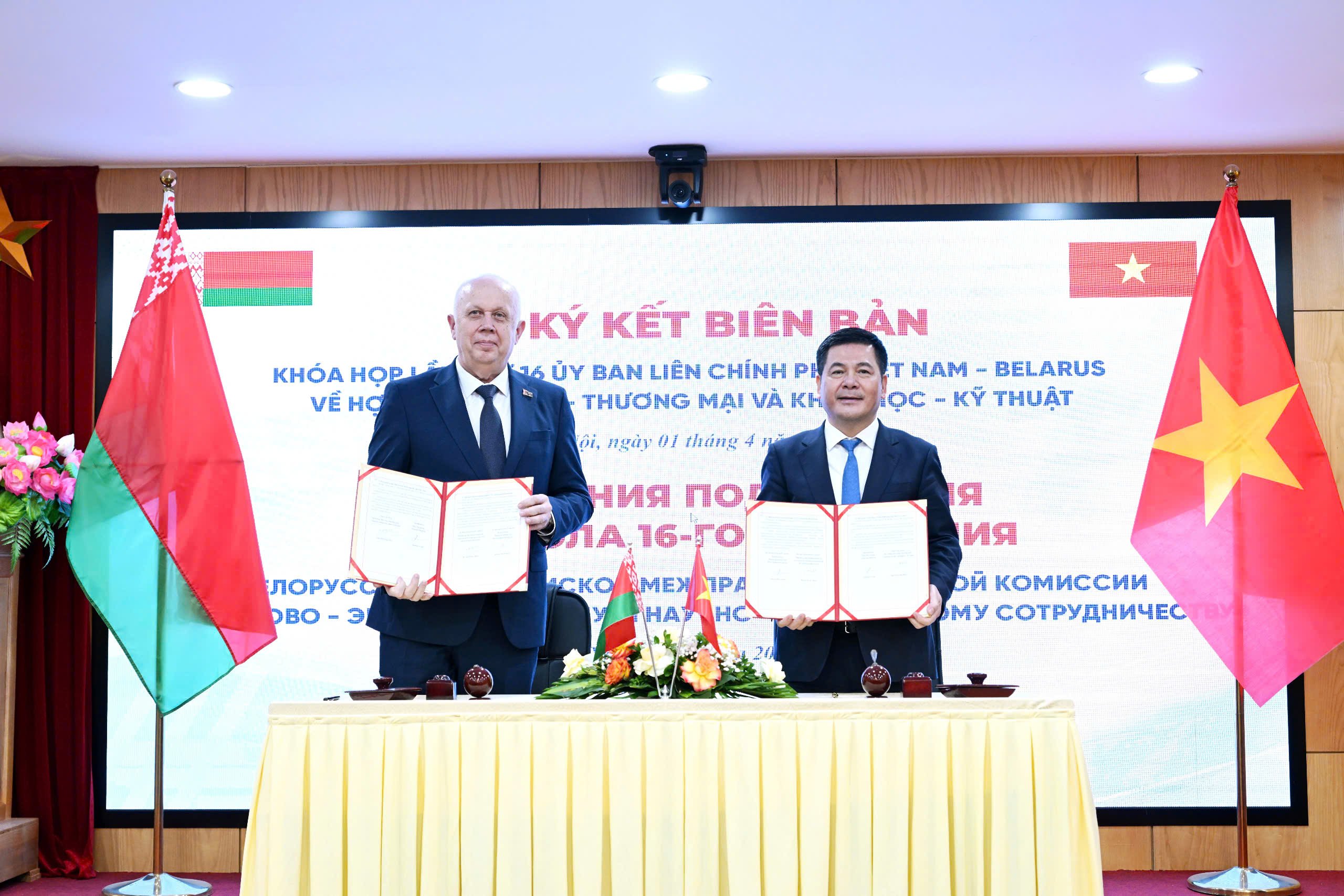
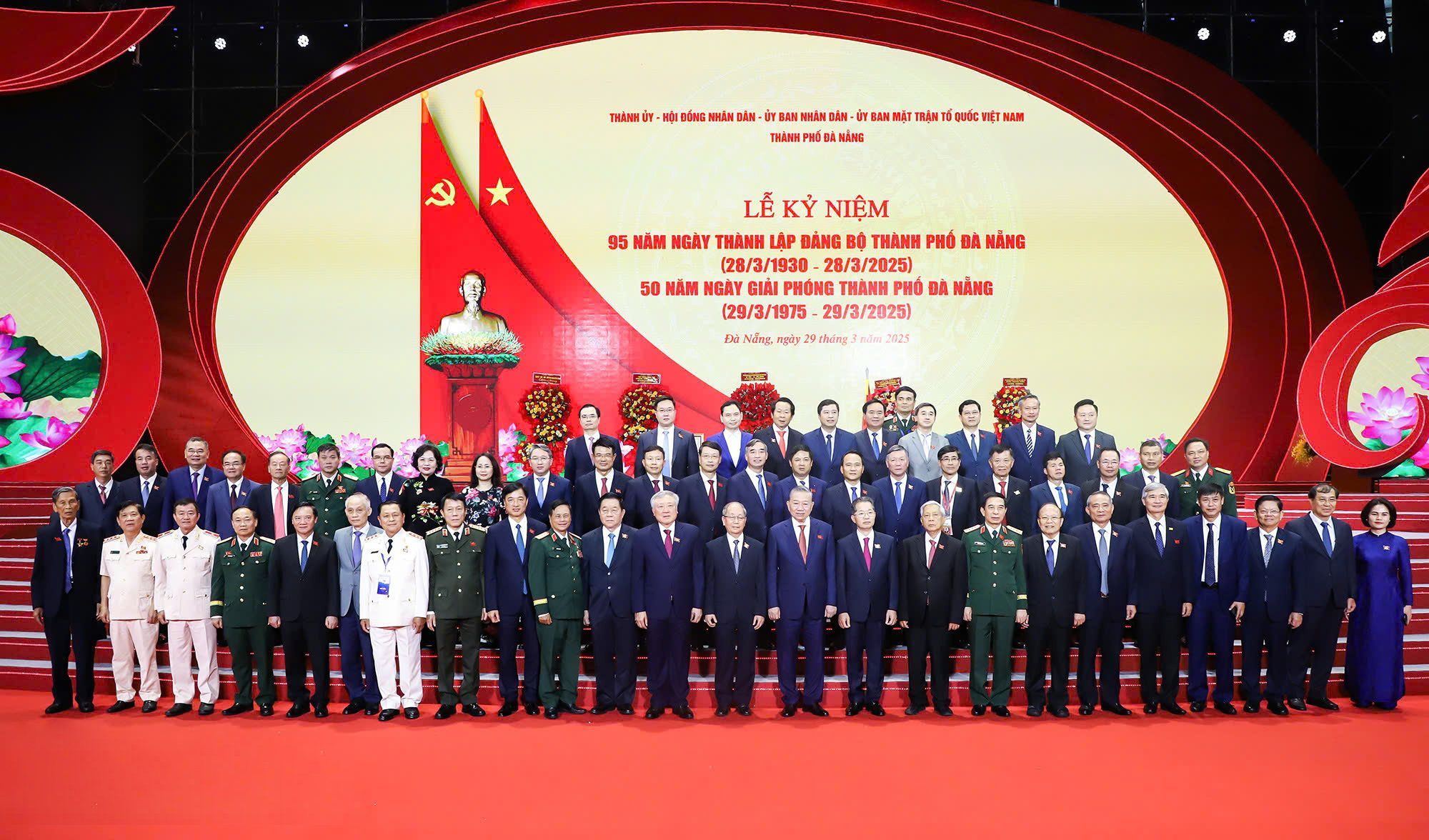


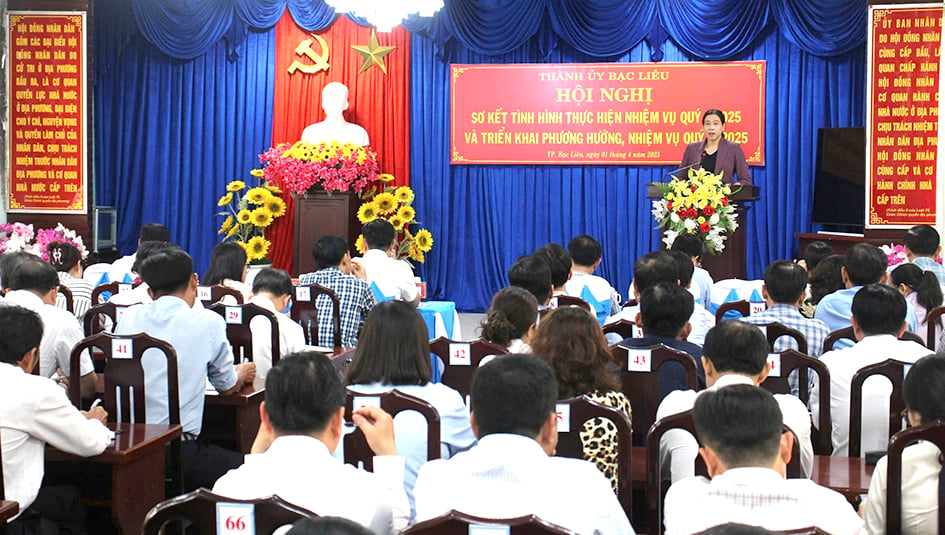


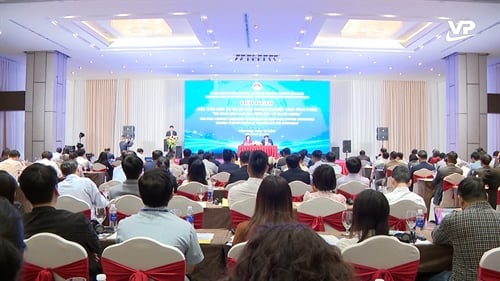
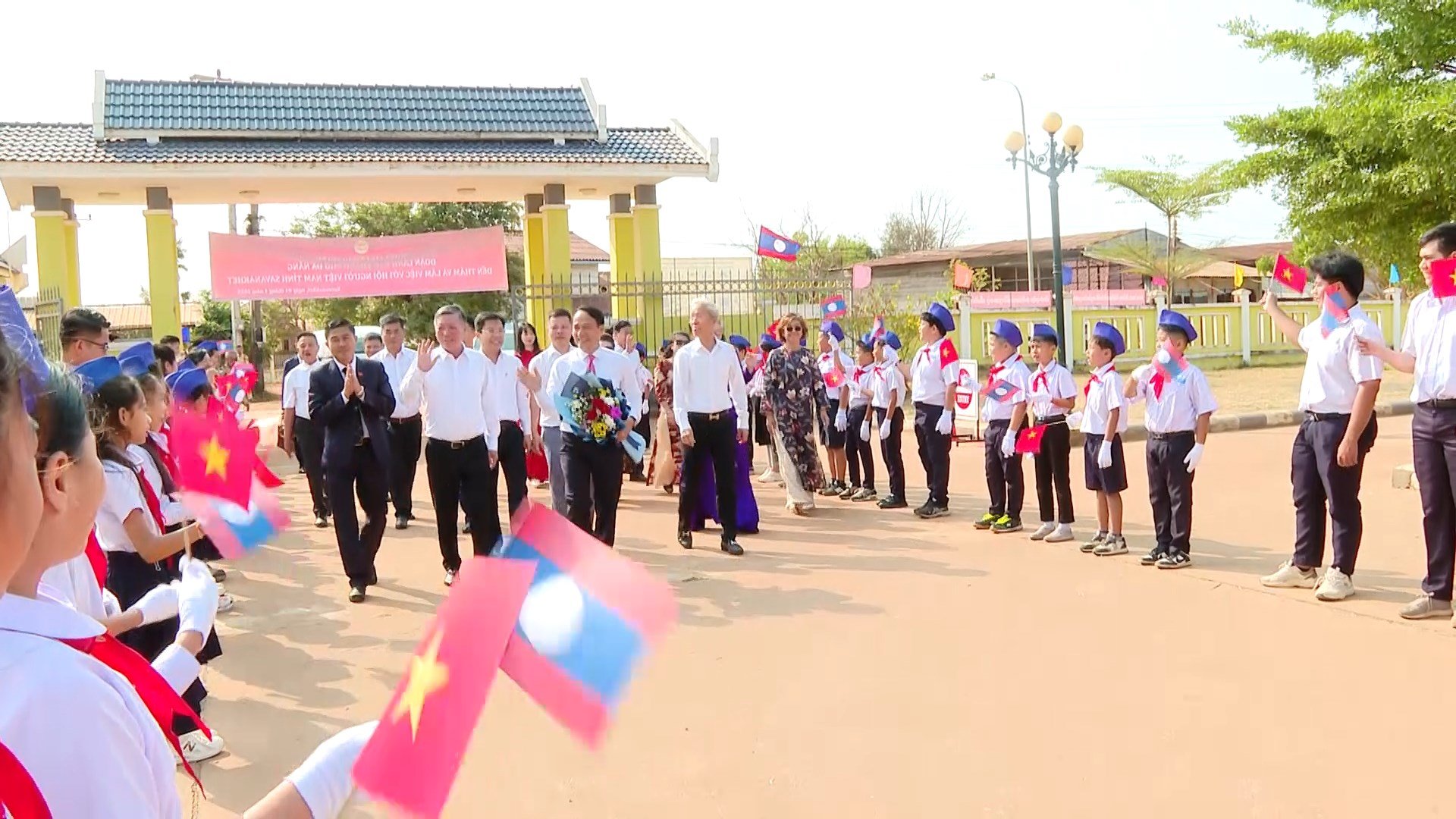











Comment (0)